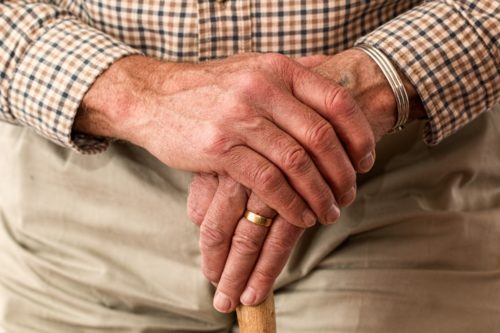
{2:30 minutes to read this}
A fall can really keep an active person down.
Six months ago, my good friend fell in her house and broke her hip. Although she’s in her 80s, until then she had been active, independent and really enjoyed travelling to visit friends and relatives. She slowly recovered from her injury, but even after she finished a course of physical rehabilitation, she was worried about having a second fall. As a result, she now limits her activities to staying close to home and visiting her doctors. She rarely travels for fun. Her fall has prematurely restricted her vigorous lifestyle and drawn her world closer than ever.
A recent Center for Disease Control report finds that the increasing rate of injuries and fatalities from falls for Americans over the age of 65 is itself a major health concern.
The CDC reported that one out of three people 65 and older fall each year but less than half speak to their healthcare provider about it. It also reported that falls are the leading cause of fatal and non-fatal injuries in older people; and that in 2012, 2.4 million older people were treated in emergency departments for falls. Falls cause people to limit their activities, reduce their exercise and lead to more serious health problems.
The reasons seniors are falling can be attributed to the rise in diseases linked to falling, including:
- Diabetes;
- Heart disease;
- Stroke;
- Arthritis; and
- Parkinson’s disease.
Medications taken to treat these diseases also have side effects which may increase the risk of falls.
To make matters worse, a senior who suffers a severe injury due to a fall may have increased disability. Their becoming bed-ridden or house-bound leads to weakened muscles and systems, which start to fail.
The good news? Many of the injuries and deaths are preventable.
Experts suggest that seniors should take the same precautions against falls as they would against heart disease or diabetes:
- Exercise regularly with balance drills.
- Ensure blood pressure and vision are regularly checked and healthy.
- Be aware of medication side effects, and if falling is a risk, ask if prescriptions can be altered or accommodated.
- Have your eyes checked regularly to make sure your eyeglasses are providing maximum visibility.
- Address any foot conditions that hamper your walking ability.
We all hope we are lucky enough to grow old gracefully. What measures have you taken to ensure the seniors in your life have that opportunity?
Ron Katter
Katter Law Firm
Phone: 844-WAS-HURT
Alt Phone: 212-809-4293
